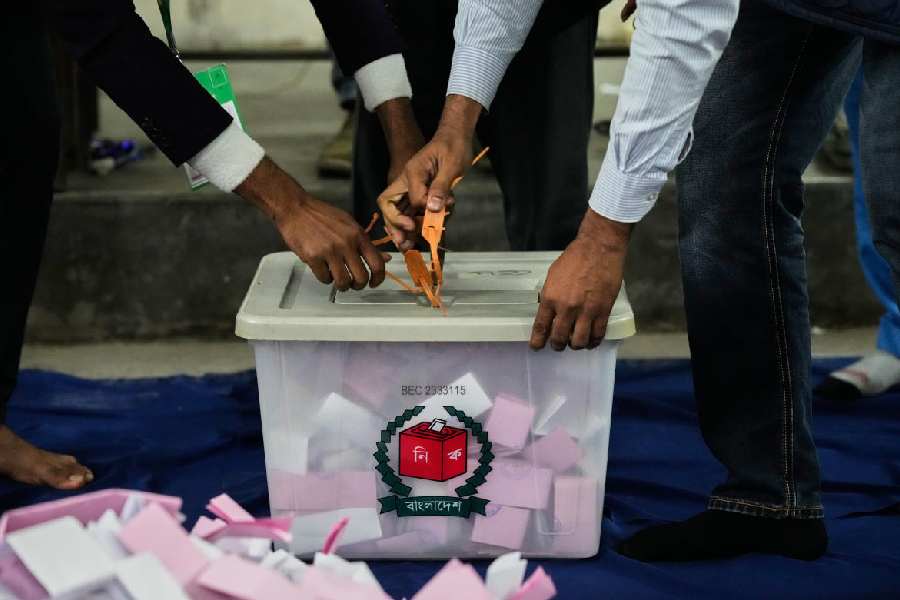Guwahati, June 6: Assam’s bid to check the trafficking menace has gone a long way, thanks to the setting up of anti-human trafficking units last year, surveillance of placement agencies and active community participation.
The state’s efforts to check human trafficking, which has affected its underdeveloped areas like the BTAD, lower Assam and Cachar, have been acknowledged by the ministry of home affairs with a cash award of Rs 2 lakh for “outstanding work done in the field” on this front.
The award was to be presented to Assam chief secretary N.K. Das in Delhi by home minister P. Chidambaram today, but got put off owing to unavoidable circumstances, sources here said.
Since the establishing of the anti-human trafficking units in July 2011, 100 cases have been registered, 216 victims have rescued and more than 118 traffickers and their agents apprehended.
Sources in the chief minister’s office said one key reason for the efforts yielding results was community participation. “Forging synergic partnerships with all stakeholders — police, village defence parties, social welfare and labour departments, NGOs, judiciary, legal service authority, community leaders, student leaders and railways have helped us a lot in our efforts. Credit has to go to the public. We now need to consolidate our gains as the menace is far from over,” an official said.
Other anti-trafficking measures included networking with nodal officers of other states and the ministry of home affairs. It also envisages setting up of 14 anti-human trafficking units and making them functional with dedicated police personnel; training, sensitisation and capacity building of all stakeholders jointly by the government with help of agencies such as the State Legal Service Authority and Unicef. Besides, awareness generation among the masses through a proactive role played by the media and focus on missing children will be part of the campaign. The measures include a victim-friendly approach and focus on prevention and interception before the victims are trafficked out at transit points such as railway stations and bus terminuses.











